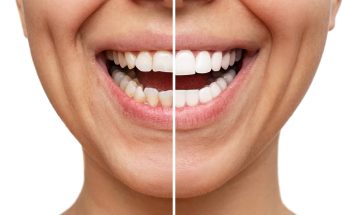Muscle contractions causing headaches are a regular experience that many times can interfere with a person’s functionality or activities. Thus, the type or category of the headache is very important in determining the ideal treatment. Below are details of five different types of headaches and how you would treat each of them:
Tension Headaches
Tension headaches are the most frequent, while their causes include stress anxiety, or incorrect positioning of the body. It usually manifests in the form of a dull and steady headache or sensation of pressure situated above or around the forehead or the back of the skull and neck.
Treatment: Non-prescription drugs that can be purchased without a prescription usually do the trick, especially NSAIDs such as Ibuprofen and Paracetamol. Other methods that can assist in preventing tension headaches include practices such as practising good posture, finding ways of managing stress, and engaging in physical exercise regularly among others.
Migraines
Migraines are painful and usually pulsating headaches which come in bouts and may last from an hour to three days. They can also be associated with other symptoms such as nausea and vomiting and intolerance to light and noise. Migraine is a severe condition, it is moderately incapacitating and can substantially alter your lifestyle.
Treatment: Pharmaceutical drugs like triptans can be beneficial since they are prescription medicines used to manage migraine conditions. Consulting a headache specialist can help the patient get an individualized care plan and techniques for preventing the headache.
Cluster Headaches
Cluster headaches as described are severe headaches that appear in cycles of attacks or other words, cluster headaches occur in clusters. Mainly, they are excruciating pain around a certain eye, and this is usually associated with redness, tears and even a stuffy nose. These headaches may take 15 minutes to 3 hours and can occur many times throughout the day.
Treatment: It is crucial to understand that there is no known way to alleviate the pain of a cluster headache, but treatments such as corticosteroids and calcium channel blockers could keep the episodes from occurring as frequently.
Sinus Headaches
Headache due to sinus is a result of inflammation of the sinus passages caused by infection or allergies. This type of headache leads to constant severe pain in the forehead, cheekbones, and the bridge of the nose. This pain increases when a person tries to bend the head or make any movements with the head part.
Treatment: That is why sinus inflammation must be taken care of to manage a patient’s symptoms. Medication which can include decongestants, antihistamines and nasal sprays helps in treating the condition.
Rebound Headaches
Medication-overuse headaches, sometimes commonly referred to as rebound headaches, occur as a consequence of the continued usage of headache drugs. It is usually a daily or near-daily headache that becomes encoded when the medication is taken regularly.
Treatment: The first strategy is to change for example by ceasing the use of the previously over-prescribed drug. It can be done gradually in consultation with some medical practitioners to ensure that the patient is coping well with the withdrawal symptoms.




